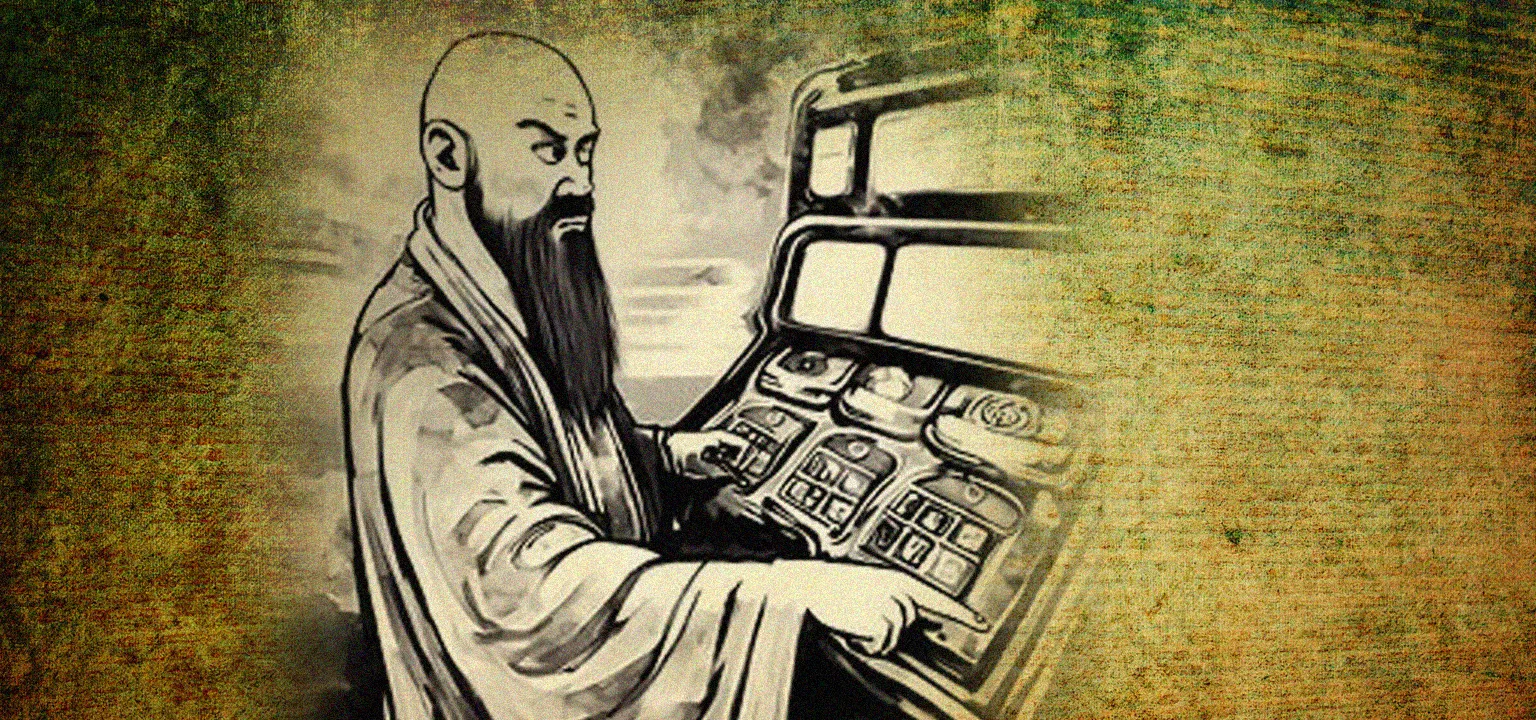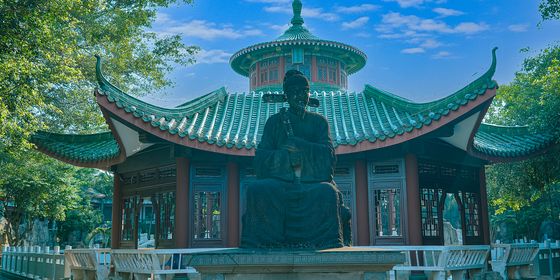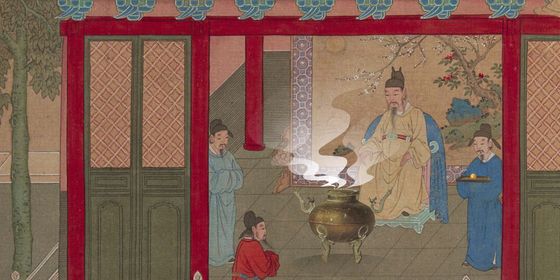Discover how ancient Chinese gambled...sometimes with history-altering effects
In 926, when Huangfu Hui (皇甫晖), a soldier during the Five Dynasties period (907 – 960), decided to try his hand at the gambling table in a military camp, he didn’t expect to change history.
Without much luck, Huangfu quickly lost all his money and owed a fair amount of debt. Feeling hopeless, he took a drastic step: He kidnapped his general and forced him to start a rebellion against the emperor. Emperor Li Cunxu (李存勖) sent his adoptive brother Li Siyuan (李嗣源) to suppress the rebellion, but Li Siyuan instead joined the rebel forces and claimed the throne. After the rebel army attacked the capital and killed the emperor, Huangfu became a provincial official.
Gambling has a history of over 3,000 years in China. Though as early as 2,000 years ago, Mencius stated that gambling was unfilial behavior, and many dynasties tried to ban it, gambling persisted among people from all walks of life, from emperors, and government officials, to ordinary people.
The first form of gambling recorded in China is believed to have emerged in the Xia dynasty (c.2070 – 1600 BCE), and was known as 博 (bó). The ancient Analytical Dictionary of Chinese Characters (《说文解字》) states that “In old times, Wu Cao invented bo (古者乌曹作博).” Wu Cao was an official in the Xia dynasty, and bo referred to a board game using 12 chess pieces, which was called “六博 (liùbó).” Though its rules are untraceable to modern historians, it sounds similar to Chinese chess, so some believe liubo was the precursor to chess. As the game became increasingly popular, the character 博 gradually became a general term for all types of gambling.
In the Spring and Autumn (770 – 476 BCE) and Warring States (475 – 221 BCE) periods, forms of gambling became more diverse. Besides board games, competitions involving animals became a major way of gambling. Among the rich, horse racing was extremely popular. The Records of the Grand Historian (《史记》) by Sima Qian (司马迁) recorded a famous story from the Warring States period, when military general Tian Ji (田忌) and the king of Qi often made bets on horse racing. They both chose three of their own horses and classified them into three grades according to their speed. There would be three rounds of racing in total, and the person who won two of them would become the final winner.
Since the king’s horses, in every grade, were better than Tian’s, Tian lost many times. Then, the famous strategist Sun Bin (孙膑) offered a suggestion to Tian: To use his slowest horse to compete with the King’s best horse in the first race, use his second-class horse to race with the king’s slowest horse in the second race, and his first-class horse to run with the king’s second-class horse in the last race. As a result, Tian lost the first round but won the last two rounds, winning 1,000 taels of gold from the king. Today, the Chinese idiom “Tian Ji’s horse race (田忌赛马)” refers to taking advantage of one’s own strengths and attacking the opponent’s weaknesses.
Among ordinary people, dog races and cockfights were the preferred form of gambling. In The Commentary of Zuo (《左传》), a narrative history of political, diplomatic, and military events from the eighth to fifth centuries BCE, a case of cheating in cockfighting was recorded: In the State of Lu of the Spring and Autumn period, Ji Pingzi (季平子) and Hou Zhaobo (郈昭伯), two high-ranking officials, bet on a cockfight. Ji applied mustard on the wing of his rooster in order to blind its rival, while Hou secretly attached a sharp metal hook to his bird’s feet as a weapon. Hou’s rooster won the game, and hatred was sown between the two men. Their enmity led to severe political struggles, which finally caused a coup in the palace.
As gambling grew more widespread, its negative influence on people became more and more obvious. Like in the case of Huangfu Hui, some consequences of gambling were deadly. According to Records of the Grand Historian, Lord Min of the State of Song in the Spring and Autumn period once played liubo with military general Nangong Zhangwan (南宫长万), and they got into a quarrel because of the game. Then, Lord Min mentioned the fact that Nangong had once been captured by the enemy to insult him. Nangong became so angry that he killed Lord Min using the game board.
Incidents like these gradually came to the attention of the state. In the Warring States period, the Wei state’s Canon of Laws (《法经》), China’s earliest systematically written code of laws, stipulated that people who were caught gambling would be fined; if the crown prince gambled, he would be flogged, and if he was found gambling again, he would be deposed. In the Qin dynasty (221 – 206 BCE), the law stipulated that people taking part in gambling would be tattooed on the forehead as a punishment.
But this didn’t stop the development of gambling. Many more ludicrous stories about gambling were recorded in the following dynasties. For example, according to the Book of Han (《汉书》), Emperor Xuan of the Han dynasty (206 BCE – 220 CE) was a keen gambler before he inherited the throne. He owed a large amount of debt to a man named Chen Sui (陈遂). After he ascended the throne, Emperor Xuan appointed Chen as the prefectural chief of Taiyuan as a form of payment.
In the late years of the Han, another game emerged, which was known as 樗蒲 (chūpú). It’s a game of chance, in which people throw five flat dice made of wood. Each die had two sides, one black, and one white. Whoever gets more black wins the game. This game was still a craze up until the Song dynasty (960 – 1279), and chupu became a byword for gambling.
According to A New Account of the Tales of the World (《世说新语》), a compilation of character sketches and anecdotes from the first to the sixth century, military general Wen Jiao (温峤) of the Eastern Jin dynasty (317 – 420) was a big fan of chupu. He often played this game with local merchants and lost a lot of money. Once he even wagered himself as collateral for his gambling debts, until his friend paid the money to buy him off from a life of slavery.
In the Tang dynasty (618 – 907), cricket fighting came into fashion, and its popularity lasted in the following Song and Ming (1368 – 1644) dynasties. Jia Sidao (贾似道), prime minister of the Song dynasty, so often indulged in cricket fighting that he was nicknamed “Cricket Prime Mister.” Emperor Xuande of the Ming dynasty was also called “Cricket Emperor” for the same reason—he even promoted an official who found a strong cricket for him. Though Emperor Xuande was actually a pretty successful emperor in other ways, this hobby became a stain on his reputation.
Emperor Daozong of the Liao dynasty (907 – 1125) was also a famous gambler. According to The History of Liao (《辽史 》), in the late years of his reign, the emperor even ordered officials to cast dice to decide who would get a promotion.
In the Ming and Qing (1616 – 1911) dynasties, card games began to catch on, mahjong was also invented, and gambling was more widespread than ever before. In The Sketch Book of Liaozuo (《辽左见闻录》), Qing dynasty scholar Wang Yiyuan (王一元) described people “playing day and night, and the whole country appeared to be crazy.”
Gambling persisted in each of these dynasties, despite laws that banned it. Qing writer Pu Songling (蒲松龄) warned of its dangers, a reminder still valid today: “Nothing under heaven can destroy a family faster than gambling. Nothing in the world can destroy one’s moral integrity worse than gambling.”












